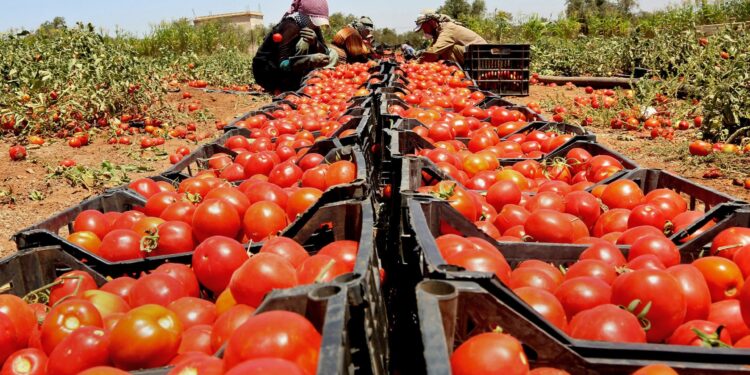Jordan has refused to export tomatoes to Israel after the Israeli Ministry of Health allowed their import under certain conditions, the Israeli newspaper Yedioth Ahronoth reported today.
In August, the Israeli Health Ministry banned the import of tomatoes from Jordan, saying in a statement: “Laboratory tests have shown positive samples of cholera in the Yarmouk River drainage area. The ministry has contacted Jordanian authorities requesting information on the sources of water used for the crops.”
abuse or punishment
The newspaper quoted unnamed sources in the Israeli Ministry of Agriculture as saying: “The Jordanians were offended by the unilateral announcement and are waiting for an apology from the Ministry of Health.”
She explained that the incident could also serve as a pretext for Jordan to “punish” Israel for its actions in Gaza and Lebanon, adding: “With the global shortage of tomatoes and the rise in demand, Jordanian farmers have no problem finding alternative markets.”
Israel imported tomatoes from Jordan to replace vegetable imports from Türkiye, which stopped after Turkish President Recep Tayyip Erdogan banned exports to Israel.
Amid the ongoing shortage, Israel’s Ministry of Agriculture and Food Security announced yesterday that it would open an additional import quota of 5,000 tons of duty-free tomatoes until the end of December.
In mid-August, the Health Ministry approved a similar quota of 5,000 tons, of which 2,500 tons have already entered Israel, mostly from Poland.
High prices
Despite the customs exemptions, the global shortage and high demand have kept prices high. Regular tomatoes sell for around NIS 12 ($3.18) per kilogram in most Israeli stores, and can go up to NIS 15 ($3.97). The price of cluster tomatoes has risen to between NIS 25 ($6.62) and NIS 45 ($11.92) per kilogram.
The tomato shortage in Israel is primarily due to lower yields of local crops after this summer’s extreme heat and the Turkish boycott. On average, Israelis consume about 14,000 tons of tomatoes a month. Normally, local production meets most of this demand, while imports fill the gap. But this year the situation has been reversed, the newspaper reported.



